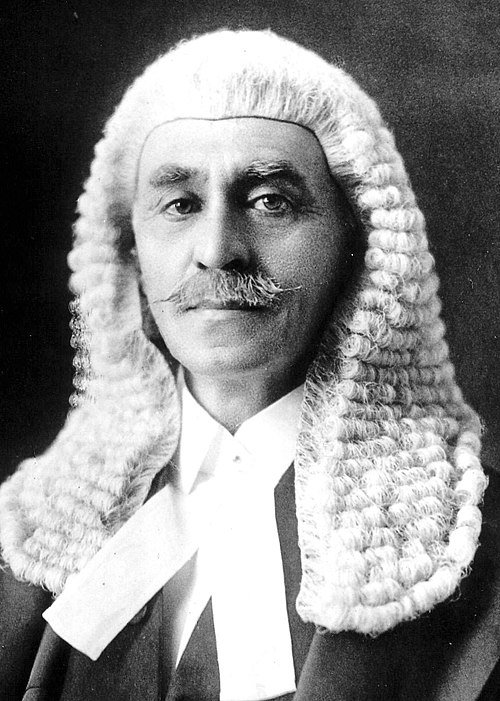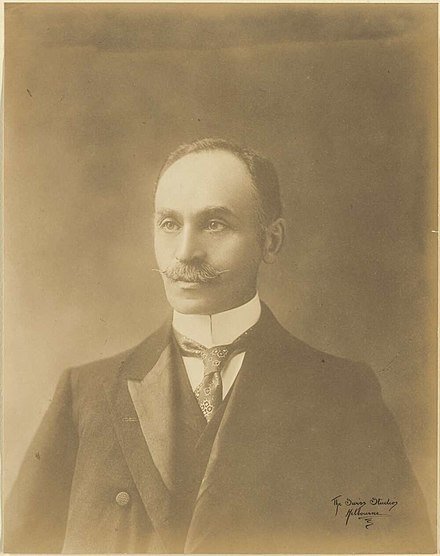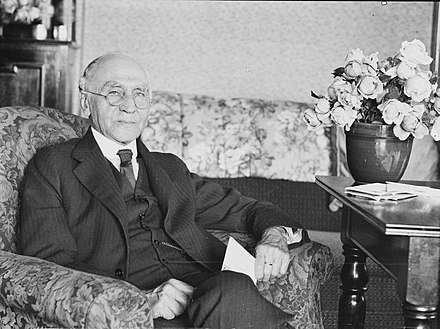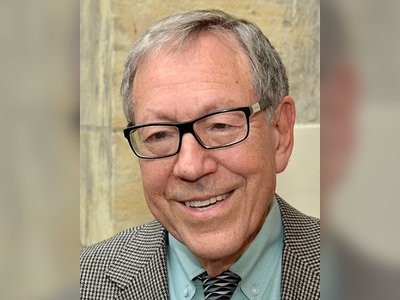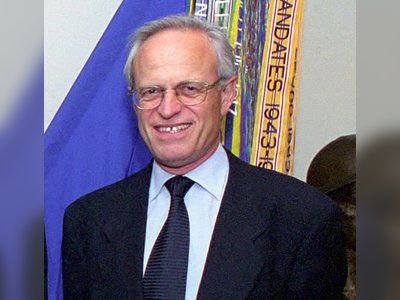Isaac Alfred Isaacs: A Portrait of a Pioneering Australian Jurist and Statesman
Isaac Alfred Isaacs, born on August 6, 1855, in Melbourne, Victoria, Australia, was a prominent Australian Jewish jurist and statesman who left an indelible mark on the nation's legal and political landscape. His illustrious career spanned multiple roles and positions of great importance, making him a key figure in the early history of Australian government and law.
Early Years and Education
Isaac Alfred Isaacs was born to Jewish immigrant parents on Elizabeth Street in Melbourne. His father, Alfred Isaacs, was a Jewish tailor who had journeyed from the town of Mława in north-central Poland, first to Germany, then to France, and finally settling in London, England, in 1845.In London, he met and married Rebecca Abrahams, also of Jewish heritage. Together, they embarked on a three-month journey by ship to Australia in 1854, where Isaac was born a year later, the eldest of six siblings. Unfortunately, two of his siblings passed away in their youth.
The Isaacs family relocated from Melbourne to the northern region of Victoria when Isaac was just four years old. It was in a town called Yackandandah, which was established during the gold rush era, that he spent his formative years.
It was there that he began his primary school education and demonstrated early signs of being a bright and intellectually curious child. In 1867, the family moved to the larger town of Beechworth, where Isaac initially attended a multi-disciplinary school and later a high school specializing in legal studies. He excelled in his studies, earning the prestigious title of "Dux" at Beechworth.
Isaac's brilliance extended beyond the classroom, as he displayed an early interest in various fields, particularly mathematics and languages. At the tender age of 15, he became a teacher at the high school he attended, despite frequent absences due to his gold mining expeditions in the surrounding areas.
His first foray into the legal field occurred during this period when he initiated legal proceedings against the school administration regarding his salary. This episode, in 1875, marked the beginning of his legal career, as he successfully argued the case against the school administration.
Isaac continued his legal studies part-time at the University of Melbourne starting in 1876, completing his degree in April 1880 with top honors. His study notes from 1879 have been preserved, serving as models of clarity and insight, filled with concise doctrines and principles, along with comprehensive summaries of landmark cases. It is suggested, although not confirmed, that Isaacs possessed photographic memory, allowing him to quote entire legal cases verbatim.
Isaacs was fluent in no fewer than eight languages, including English, Russian, German, Italian, French, Greek, Chinese, and Hindi. After earning his bachelor's degree in law in 1880, he pursued a second degree, which he completed in 1883.
During this time, he worked in the Crown Solicitor's Office in Melbourne, gaining practical experience in civil litigation. While still a part-time student, he began his formal legal career in 1880 by working for the Crown Solicitor in Melbourne, where he gained substantial experience in civil litigation.
In 1886, Isaacs brought his parents to Melbourne, and by 1888, they were residing in a spacious two-story house on Upton Street. On July 18, 1888, he married Deborah (Daisy) Jacobs, the daughter of Isaac Jacobs, a tobacco merchant who was also the president of the St. Kilda Hebrew Congregation.
The couple had two daughters, born in 1890 and 1892. Despite their frequent changes of residence, Isaacs and his family had access to a rural retreat in Mount Macedon in addition to their Melbourne home. Isaac maintained a close and affectionate relationship with his mother throughout his life, even during his tenure as a Supreme Court judge.
Political Involvement
Isaacs entered the political arena in the April 1892 general elections in Victoria. Running as an independent liberal radical candidate in the Bogong constituency, which included Yackandandah and Beechworth, he secured a comfortable victory in the Legislative Assembly.In his inaugural address to the assembly, he articulated his policy agenda, advocating for income taxation over indirect taxes that disproportionately burdened the poor. His reform proposals included revising company laws, introducing compulsory arbitration for resolving industrial disputes, and advocating for women's suffrage.
Initially supportive of Premier William Shiels, Isaacs eventually voted against his government in a vote of no confidence in January 1893, leading to the formation of a new government under Premier James Patterson.
During Patterson's government, two unsuccessful commercial bank directors were brought to trial on charges related to fraudulent conduct. The government's legal advisor, Sir Bryan O'Loghlen, decided not to proceed with the prosecution, prompting Isaacs to consider initiating legal action independently. When the cabinet determined that it was unconstitutional for Isaacs to interfere with O'Loghlen's decision, Isaacs persisted.
At the request of Premier Patterson, Isaacs resigned on May 25, 1893. His stand in the case garnered significant public support, and his resignation led to widespread acclaim.
Isaacs was a divisive figure in Victorian politics, with many of his parliamentary colleagues not particularly fond of him. His aspirations were often seen as radical and his ego too prominent.
Nevertheless, his strong advocacy for progressive reforms and legal expertise made him a compelling political leader. During his time in Victoria's parliament, he was also heavily involved in the legal community. His younger brother, John Alfred (1863-1944), an active practicing lawyer, represented the Ovens district in the Legislative Assembly from 1894 to 1902.
Political Ascendancy
Isaacs' political fortunes changed with the fall of the Patterson government. He became the legal advisor to the liberal government of George Turner from September 27, 1894, until December 5, 1899. He continued in this role during Turner's subsequent governments with James Dickson and Robert Philp, from November 19, 1900, to June 4, 1901.In November 1894, he presented comprehensive legislation aimed at reforming Victoria's debenture companies to curb malpractice after a series of financial scandals marred the era of economic prosperity. Although the bill faced significant opposition in the legislative assembly and was ultimately watered down, it still marked a significant step toward regulation.
Isaacs supported various social reforms, including the Factories Act, which established minimum wages and sought to eradicate exploitation, as well as public voting rights for women. He struggled to pass anti-gambling legislation and failed to amend the Police Offences Act in 1898 to prevent police misconduct. Throughout his tenure as a Member of Parliament in Victoria, Isaacs remained an active and influential legal practitioner.
Isaacs' political career in Victoria laid the foundation for his future roles on the national stage. His sharp intellect, legal acumen, and unwavering commitment to progressive ideals distinguished him as a dynamic and transformative figure in Australian politics and law. As he transitioned to federal politics, Isaacs would leave an indelible mark on the development of Australia as a nation.
- אייזק אייזקסhe.wikipedia.org
